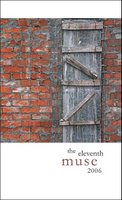
I just discovered that someone has YouTubed footage of Eva Cassidy's famous performances at Blues Alley.
Click here to see her sing Autumn Leaves. How does someone open her mouth and have such a gorgeous sound emerge, with no bells and whistles of studio production? Incredible. "Tall Trees in Georgia" was always my favorite cover of hers; I'd sing it over and over. You can also track down her version of "Time After Time"...and, well, it goes on and on.
My mother loved Eva Cassidy's voice so much, it got to the point that Eva would recognize her in a club audience and wave hello. Hard to believe it has been ten years since the singer's premature death from cancer. D.C. misses you.
A silent stretch: exactly the thing I promised I would not have on this blog. Sorry, folks, but life and four essays on Czeslaw Milosz got in the way. November is a always a quiet sadness.
Carly Sachs, great poet and channeler of our local grocery store diva Ramona, broaches an intriguing issue
on her blog about the difficulties of the poetry scene in Washington. She says:
"There's the more formal readings at LOC and the Folger and then the university readings, the slam scene, the avant garde, the northern Virginia, etc...so the question was, should we have less readings or how can we work to help each other out rather than thinning out the scene b/c we all agreed how vibrant DC is."
At a publishing event a few weeks ago, I was talking to Richard Peabody (guru of
Gargoyle), and he mentioned that years ago there was an ad hoc Poetry Committee in town--with representatives of the local series and scenes--that actually coordinated schedules so that there was never more than one major reading in town each night. So the local Poetry Audience was regarded as a pretty unified body, even if aesthetics varied between events. Though I recognize that this has the potential to become elitist quickly in actuality, I admire the idea behind it. I could imagine a quarterly pow-wow at Busboys and Poets where people met to hash out calendars (perhaps with Kim Roberts as our referee, since her
Beltway schedule is the most comprehensive of any in the area).
The problem of thinning out one's audience through over-invention (versus revitalization of existing structures) is a serious one, for reading series and for literary journals. Part of the reason I haven't curated a second season of Washington Literary Salon is that, the year after the first, Reb and Carly started up Burlesque Poetry Hour. Their series has a dedicated space, a reading day (Monday) same as that for WLS, and a similar draw in terms of readers and audience. What's the point of competing for ego's sake? I'd rather put my energy into supporting the existing enterprise.
And if that support can happen to take the form of buying a Down and Dirty Martini and bidding on Kim Addonizo's thong, all the better!
 Just in case turkey, cranberry sauce, and 80 proof alcohol isn't enough to make your holiday weekend complete, THIS SUNDAY (Nov. 26) at 5 PM to hear MATTHEW ZAPRUDER read from his book THE PAJAMAIST (Copper Canyon Press), at Politics and Prose Bookstore (5015 Connecticut Avenue NW, Washington, DC 20008; #202-364-1919; parking behind the store). Zapruder's work is top-notch, guys. Come if you can.
Just in case turkey, cranberry sauce, and 80 proof alcohol isn't enough to make your holiday weekend complete, THIS SUNDAY (Nov. 26) at 5 PM to hear MATTHEW ZAPRUDER read from his book THE PAJAMAIST (Copper Canyon Press), at Politics and Prose Bookstore (5015 Connecticut Avenue NW, Washington, DC 20008; #202-364-1919; parking behind the store). Zapruder's work is top-notch, guys. Come if you can. 

